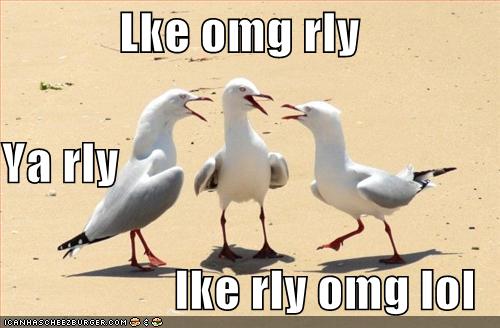Have you heard about the latest updates to the Oxford English Dictionary (OED)? For people in our line of work, this might be old news, but let me share it with you nonetheless.
As of March 2011, several new initialisms have been added to the OED, initiliasms being “abbreviations comprised of the initial letters of a name or expression. If you’re thinking “OMG!” then you are hitting the nail right on the head! OMG, otherwise known as “Oh my God” is now included in the March release of OED Online. I suppose my hairdresser was actually correct when he kept uttering OMG while doing my hair last Saturday…
On top of OMG, the editors of OED have also decided to include LOL (laugh out loud) and FYI (for your information). For some reason, I am having an easier time accepting FYI. While many of us probably use LOL online when chatting or leaving Facebook comments, I cannot imagine anyone using LOL at work – unless you take on a writing gig that involves leaving comments on Facebook.
Of course, OED has stated its case rather well: ((OED’s release))
Of course in such a context initialisms are quicker to type than the full forms, and (in the case of text messages, or Twitter, for example) they help to say more in media where there is a limit to a number of characters one may use in a single message. OMG and LOL are found outside of electronic contexts, however; in print, and even in spoken use (see, for example, the 2003 quotation for LOL int.), where there often seems to be a bit more than simple abbreviation going on. The intention is usually to signal an informal, gossipy mode of expression, and perhaps parody the level of unreflective enthusiasm or overstatement that can sometimes appear in online discourse, while at the same time marking oneself as an ‘insider’ au fait with the forms of expression associated with the latest technology.
As such usage indicates, many people would consider these recent coinages, from the last 10 or 20 years, and associate them with a younger generation conversant with all forms of digital communications. As is often the case, OED’s research has revealed some unexpected historical perspectives: our first quotation for OMG is from a personal letter from 1917; the letters LOL had a previous life, starting in 1960, denoting an elderly woman (or ‘little old lady’; see LOL n./1); and the entry for FYI [FYI phr., adj., and n.], for example, shows it originated in the language of memoranda in 1941.
I don’t know about you, but when I first heard about the inclusion of these words in the OED, I really didn’t know whether I had to say “OMG!” or to go “LOL”. Next thing we know, we’re going to have IMHO and TMI in the dictionary!
That’s it for now, folks.
Warm wishes,
Noemi xoxo
Image via cheezburger.com


Leave a Reply